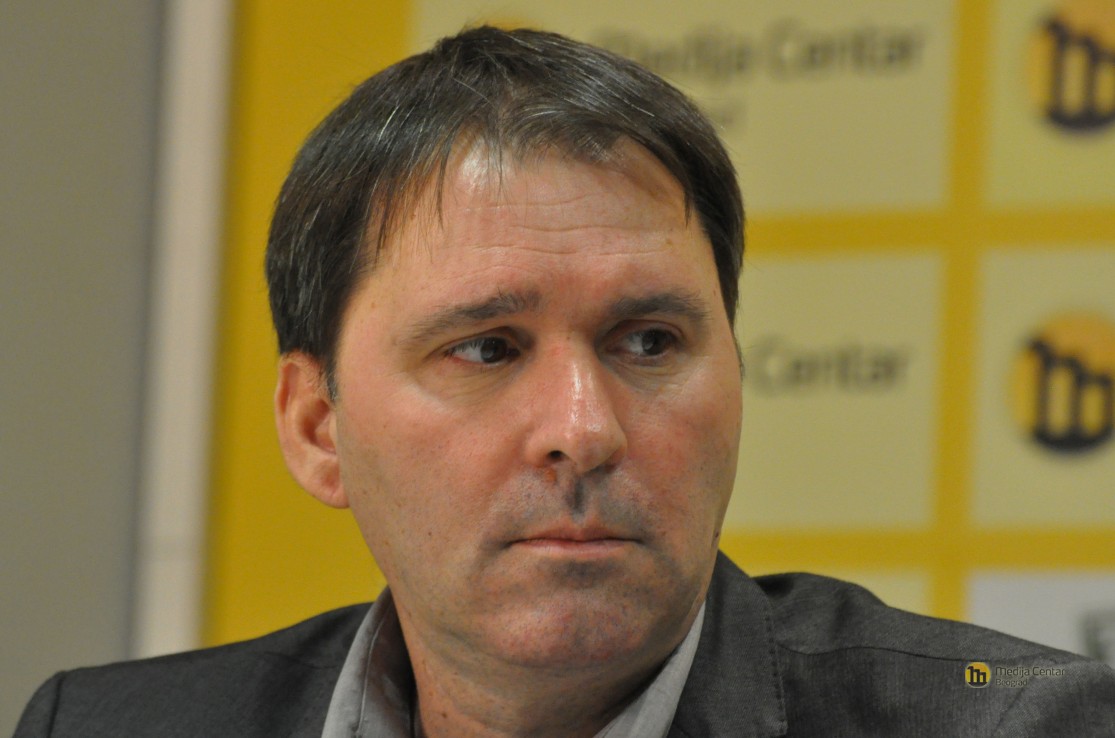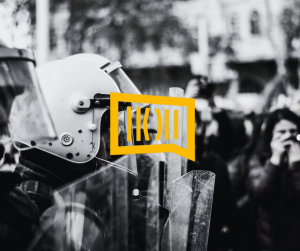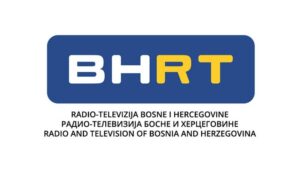In Serbia, a country officially on the path toward membership in the European Union, a considerable media blackout prevails, one that should be unimaginable in Europe in the middle of the 21st century. All national-frequency television stations are firmly under the control of the regime. It is almost unthinkable to hear criticism of the authorities on them or to see someone with an opposition stance, unless it is for demonisation and propaganda. The most-watched TV stations serve as constant vehicles of propaganda, often of hatred as well, while routinely trampling on journalistic standards, ethics, and existing laws.
From within that darkness, the media outlets of United Group still shine, N1 TV, Nova TV, the daily newspaper Danas, and the weekly Radar, along with a few honourable yet weaker exceptions, remain the main thorn in the side of President Aleksandar Vucic’s regime. Some analysts would even say they are one of the main political factors and opponents in the absence of strong opposition parties, which the regime, throughout its rule, has nearly ground down politically to the point that their very survival is a miracle.
Over the years, United Group’s media have endured various forms of pressure, demonisation, and harassment from the highest representatives of the regime or from loyal pro-government outlets. For example, there were long periods when one could hardly hear a single speech by a ruling party MP in parliament without mention, and vilification, of the “evil duo”: Dragan Djilas, leader of the strongest opposition Party of Freedom and Justice, and Dragan Solak, at the time the minority owner of the company that held N1, whom regime strategists regarded as their chief adversaries.
And while Djilas, as the leader of an opposition party, acted publicly in the way opposition politicians usually do, within the very narrow space left for opposition activity in Serbia, Solak never spoke out or appeared anywhere. As a result, ordinary people, who did not even know what he looked like, began to perceive him as some sort of mythical evil figure.
The regime tried in every possible way to drive out the owners of N1, obstructing them in business, and never allowing them to expand from cable, where they are present, into the airwaves with a national frequency. This went so far that a free national frequency in Serbia was left unlawfully unassigned for many years, simply because the favourite to obtain it would have been Solak’s TV Nova.
Under such circumstances, a student and civic uprising began in Serbia, following the deaths of 16 people beneath the collapsed canopy at the Novi Sad train station. As usual, N1 reporters went out into the field to cover the protests, often broadcasting live, without imagining how long this kind of media state of emergency would last.
It lasted for more than 10 months and is still ongoing, with no sign of ending anytime soon.
Finally, after this unprecedentedly long and exhausting period for field reporters and everyone involved in producing the news program, came the announcement of a blow from behind, delivered by the remaining majority foreign owner. The regime, it seems, had finally found a way to silence the rebellious television through its majority owner, who had previously forced out minority owner Dragan Solak, the guarantor of N1’s independence.
Because, as the regime explains it, we live in capitalism and an owner is an owner.
In an interview with Slobodna Dalmacija, N1 News Director Igor Bozic spoke about the history of the regime’s struggle against N1, the current situation and the chances that this independent team of seasoned journalists, who have repeatedly proven their professionalism and courage, will continue to work freely and keep the last independent media light in Serbia burning.
“The goal of all this is to take control and completely silence critically minded, professional media. The only unknown is how much this is all costing, and whether the owners will say: ‘Well, this is bad for our reputation, and we won’t go any further with it.’”
Is there a real chance that your foreign owners could say such a thing, and who does it all depend on? Can public opinion in European Union countries do something, or the institutions? A media blackout in Serbia surely serves no one’s interest…
“I don’t believe that politicians can do anything, because that would mean interfering in private business. However, we have a situation here where, in the conversation published by OCCRP, it was revealed that there is direct trade in political influence through the director of a state-owned company, and that this was requested directly by Aleksandar Vucic. Therefore, there are elements here that could prompt Europe to react, since our company, United Group, is registered in Europe.”
A few days ago, regime-friendly media published a text about the allegedly biased editorial policy of United Group media. They accused you of publishing the company’s press releases and being biased regarding some of its business ventures. They often accuse you of a lack of objectivity. What is your comment?
“This is just a futile attempt to divert attention from the key issue, that the government wants to take control of these free media at this very moment. As for whether you will publish a press release from the company you work for, well, of course, you will. I don’t see anything problematic there; other media should also publish releases concerning certain financial investments, but in Serbia, that clearly doesn’t happen… That is common media practice, and I don’t see how it has anything to do with editorial independence.
It doesn’t change the essence, we ourselves determine what the key news stories are, we ourselves decide which topics we will cover, journalists themselves propose those topics, editors decide on the order, on presentation, and on what will be the leading stories… That is the basis of every media outlet. Whether a company press release will be published or not is completely irrelevant. We publish press releases from other companies as well.”
Vucic’s fight against you has lasted a long time. In a way, he even turned you into some kind of political factor, which, in a normal situation, the media should not be. The regime’s poisonous arrows have been fired at you for a long time, and you have resisted for a long time. What was the key moment when things reached this seemingly decisive stage, and when did they start to turn against you?
“The key moment, I think, was that behind-the-scenes agreement with the majority owner, which strikes at the very heart of media freedom, and we could see that in the conversation where the director of United Group mentioned reducing operations in Serbia itself.
But what was the crucial moment in Vucic’s intention to bring us under control? I think it goes much further back, and that he tried above all through pressure on our minority owner, who managed United Group (businessman Dragan Solak), and carried it out through a very dirty campaign, waged through the tabloids, through Vucic himself, and through everyone else who turned Solak into a political figure.
That has nothing to do with reality. First, the man (Solak) is not involved in politics; second, he never gave or commented on any journalistic or other inputs. Vucic tried to pressure him into giving in or deciding to sell those media outlets because of the pressure, but that didn’t happen. When Vucic realised it wouldn’t, he resorted to other means, as he usually does, by pressuring the majority owner.
But it is obvious that the owners of a foreign company cannot be influenced by ordinary pressure, because it simply doesn’t affect them the way it does someone living in this country. So then he did everything possible to achieve it financially. And now, if one looks back a few years, one can see how much Telekom invested in this, going back to the period when, in order to prevent United Group from buying what was then B92 and TV Prva (which already held national frequencies), the entire operation was arranged so that Kopernikus would sell its cable business and receive an incredible amount of money in return, money that was then used to buy those two foreign-owned television stations, solely to prevent United Group from acquiring them.
That was the first step. The next step was taking over other cable operators and removing N1 from their offerings, since N1 had previously been part of their lineup, including Kopernikus. This reduced our visibility and also cut our revenue, since we earned money from being carried on Kopernikus. During this entire period, a campaign against us was ongoing, completely isolating us from any normal communication with the authorities, portraying us as people who supposedly refuse to hear their side, when in fact it is they who refuse to appear on our programs and who respond to our field questions with arrogance and hostility.
In fact, it is only Vucic who does this, since other officials no longer even hold press conferences. For years, one could not ask a single minister a question. So we have reached a situation where we do not have government representatives in our programs, they do not answer our questions, and we have to make do by using their statements from regime-controlled TV stations, fitting them into our stories so our viewers can see what is being said on other channels, of course, placed in the context we want, since we do not want to air propaganda.
Yet all the while his narrative persists, spread through diplomatic and other channels: that our programming is not balanced, that we are unprofessional because there are no government representatives, when in fact he deliberately refuses to appear.
Parallel to that, Vucic escalated the way he portrayed N1: first, we were a ‘foreign television,’ then a ‘yellow television’ (a derogatory label for the Democratic Party), then an ‘oligarch television,’ then a ‘CIA television.’ Finally, this year, we became ‘terrorist media,’ ‘occupation media,’ and ‘media serving as a tool of pressure to overthrow the state.’ At that point, the line was completely crossed, he declared us enemies of the state simply because we ask critical questions, because we confront him with uncomfortable issues, and because instead of answering, he shifts blame, attacks the minority owner, directly targets journalists, harasses them in every possible way, and pressures them to give up their work, to be frightened and withdraw. But that has not happened.
In the end, it came to the point of: ‘Fine, I’ll pay for this directly.’ All along, he had used the money of state-owned Telekom to try to force SBB out, to make them sell their company, and he succeeded. Let me remind you: he invested €600 million, 700 per cent more than the Premier League had cost up to that point. He irrationally and uncommercially spent €600 million of a state company’s funds, indebting it by an unknown amount, by buying up all the sports rights so that Sport Klub (owned by SBB) would become uncompetitive. Ultimately, he spent state money to buy up the very competition.
In the end, we come to the fact that the media excluded from those earlier buyouts remained, and then he had to come after them too, finding a way to strike a new deal. We will only see at the very end what kind of deal that is, or, I would hope, never see it at all, and that it never happens.
But all of that is less important than the ultimate goal, which is to create a situation where it doesn’t look like Vucic directly shut down or smothered the media, but rather that the owner did it. And now we see, and have proof, that the owner did not do this on his own initiative; he was given an indecent offer, and he accepted it.”
United Group media operate in many countries of the region. What can viewers of the channel broadcasting in Croatia and media in other countries expect if the changes in United Group are fully carried out?
“I don’t know whether it will have an impact, nor can I predict such a thing. I can only try to interpret what I heard in that conversation, and I don’t want to be imprecise or merely speculate. To me, it seems the intention is to separate the Serbian media from the others in the group. But I don’t have any confirmation of that. In that part of the conversation, Lucic promised Miller that operations in Serbia would be reduced, but we don’t know exactly what that means. We have not received any explanation from United Group itself as to what that means or why it is necessary. Serbia produces by far the most programming, but objectively, it also has the most material. And in Serbia, we are profitable.”
How do N1 journalists endure all this pressure, a kind of prolonged state of emergency in their work, now combined with a blow from their own owner?
“Naturally, people are exhausted, given this pace. I don’t know of a single newsroom that has managed to work at this tempo for so long. But on the other hand, since these speculations began two months ago and since the changes in United Group, not a single journalist has left us. That means people love what they do, and they feel their work is meaningful to society.
It’s not just about the salary; they are satisfied because they believe producing what they produce has a purpose. They recognise that the audience appreciates their work and effort, and that the audience finds it important that they continue doing what they do. That matters much more than whether you personally feel tired or pressured. They are used to pressure. Of course, it is unpleasant and disgusting what they go through, the ways in which they are targeted and insulted. I don’t have words to describe how the state tabloids treat their work, and not only them, but also government officials. And then, to end up with this bitter pill from the majority owner of their own company, I think that, at the very least, is not fair.”
Source: N1




